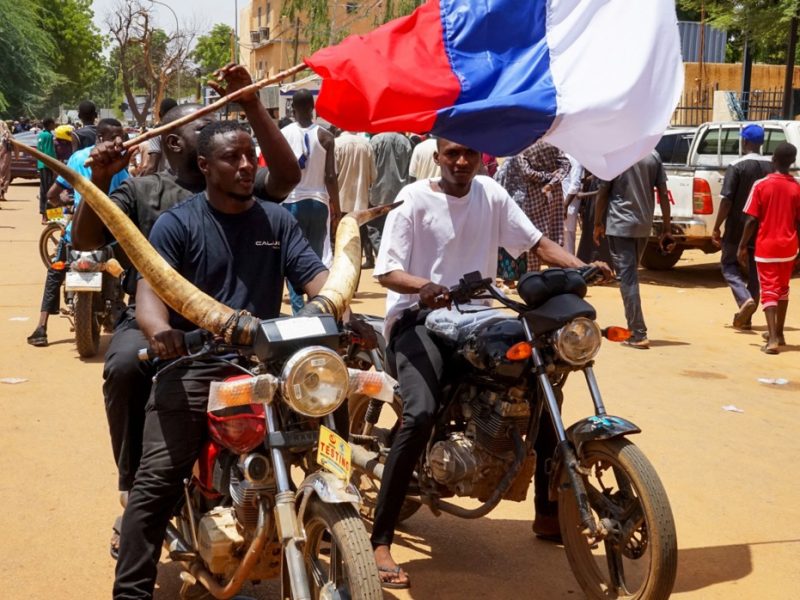“Nothing is happening. I don’t know what is going on,” were the words uttered by an exasperated-looking Ali Bongo, the president of Gabon, as he called on his supposed allies around the world to “make noise” and save him from house arrest in the presidential palace as generals overthrew him.
The video, which has been memed to death on TikTok, was aimed directly at France, the former colonial power which in recent years has seen its influence severely wane across Western and Central Africa. Since 2019 there have been coups in multiple former French colonies: Niger, Burkina Faso, Mali, Chad, Guinea and, most recently, Gabon. While in Sudan, two coups have taken place in a matter of years.
Some Western analysts have used the military takeovers to claim that we are seeing the death of democracy in Africa. But the reality is far more complicated than that because each coup represents a specific country-based dynamic.
The takeovers in Niger, Burkina Faso and Mali, for example, have partly been about ending what many in those countries believe to be France’s overbearing political and military influence.
France has stationed a considerable number of troops in these countries in part to help fight terrorism. Their presence, however, appears to be largely no longer welcome. French president Emmanuel Macron has vowed that his country will not be forced out of the continent. After the coup in Niger, where President Mohamed Bazoum was ousted in July and held under house arrest by a group of military generals, Macron tried to take a stand.
“France and its diplomats have faced particularly difficult situations in some countries in recent months, from Sudan, where France has been exemplary, to Niger at this very moment,” Macron said in a speech in Paris last week.
“I think our policy is the right one. It’s based on the courage of President Bazoum, and on the commitments of our ambassador on the ground who is remaining despite all the pressure, despite all the declarations made by the illegitimate authorities.”
At the same time, Russia’s Wagner mercenary group is exploiting the situation by attempting to replace France as the dominant foreign power across the region. So far, the junta leaders in Mali and Sudan have attempted to forge closer ties with the group.
Then there was the 2021 coup in Chad, which saw military officers suspend the constitution after the sudden death of President Idriss Deby, who was killed as he visited troops fighting rebels in the north of the country. The officers were led by Deby’s son, Mahamat, who has remained in power following a promise of elections in 2022 – a vote that is yet to materialise.
Meanwhile in Sudan, a coup in 2019 followed months of protests that removed Sudanese president Omar al-Bashir, who had ruled with an iron fist for three decades. This was followed in 2021 by a military takeover that ousted the subsequent civilian government.
Now, the coup in Gabon seems focused on ending one family’s 56-year rule of the small, oil-rich country. The deposed president, Ali Bongo, had been running Gabon since 2009. He came into power when his father, Omar Bongo, died, and he had ruled the country for 42 years. The coup came just days after Bongo won a third presidential term in elections that were marred by accusations of irregularities.
Following the coup, footage on social media appears to show large crowds cheering in the streets of the capital, Libreville, as a military convoy drives past.
Bongo, who has been released from house arrest, has also been accused of being too close to the country’s former colonial ruler: France. It doesn’t look like anyone is making noise for Ali Bongo any time soon. The leader of the coup that ousted him, General Brice Oligui Nguema, was inaugurated as interim president earlier this week.
Source: Vice News






